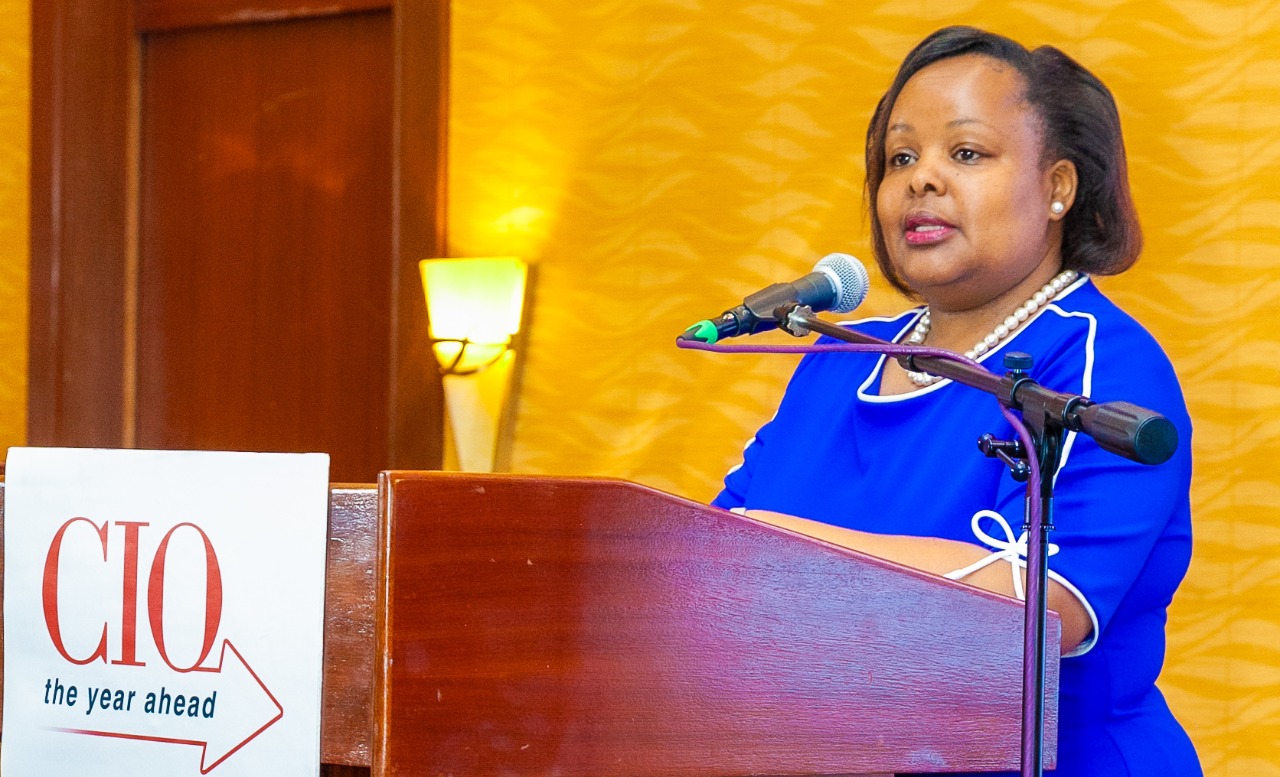advertisement
Disruption will be a catalyst for opportunities in 2020
Digital Transformation experts predict that enterprise space will exponentially change in 2020 and accelerate a pace of a completely different…

Digital Transformation experts predict that enterprise space will exponentially change in 2020 and accelerate a pace of a completely different look and feel in 10 years.
According to the experts at the CIO East Africa’s Year Ahead Forum 2020, while information technology strategies basically regulate the long-term deployment of information and communication systems of a company, it has increasingly become difficult to formulate general rules for efficiently running an enterprise effectively.
Comparing the earlier times when companies often followed a top-down approach, both the current and to a large extent the immediate next generation are already steadily setting a pace of drastic changes lined to democratize the public and private run corporate entities.
advertisement
The biggest risk of disruption tends to send corporate leaders into narrow, defensive stances.
Mercy Wanjau, Ag. Director General, Communications Authority of Kenya
At the forum themed: Turning Accelerated Disruption into Opportunities, Mercy Wanjau, Ag. Director General, Communications Authority of Kenya said: The biggest risk of disruption tends to send corporate leaders into narrow, defensive stances. She noted that in this circumstances, trying to respond directly can lead to actions that challenge the status quo and increasing the risk of failure.
According to Wanjau, over the years, the ICT sector has been alive to these disruptions by constantly accepting, responding to it and shaping itself rather than ignoring disruption adding that the only distinction is that present transitions are swiftly calling on organizations to continually reinvent and be responsive to the dizzying timeframes of this digital age innovation.
Adam Lane, Senior Director, Huawei Technologies noted that in an intelligent world: Huawei Technologies has distilled insights from working with the top global businesses around the world with additional research to identify 10 trends towards 2025 that businesses should be aware of and what they mean in Kenya.
advertisement
Organizations, emphasized Wanjau are increasingly having to make complex decisions against the ticking clock of change. She noted that the industry is grappling with a plethora of new technologies and business models with the power to disrupt businesses that even the mundane tasks now require new approaches, enabled by exponential technologies and liberalized public policy.
While setting the pace of engagement at the forum, Laura Chite, CEO, CIO East Africa, said the market is slowly eroding barriers to market entry on a global scale. The new entrants are finding it a little easier scaling up businesses that once took years to establish. She noted that the resultant effect has been increased competition and reduced product life cycles, creating a market that is ripe for disruptive entrants with the power to interrupt even the best laid plans, predictions, and forecasts in 2020 and beyond.
Wanjau noted that in the state of flux in organizations are today prompting organizations to ask questions like; how do we predict the next big disruption? How do we identify and meet innovative startups? How do we harness innovations? Based on this scenario, there is no single organization or individual with all the answers said Wanjau quipping: “There are no universal answers too.”
advertisement
Global trends have shown that unprecedented disruption cuts across all industries. The good indicator of this is the turnover rate of the Fortune 100 over the last 40 years, starting from 1973. By 1983, about one-third of these companies had fallen off the list. By 2013, 70% of the companies were replaced by new ones. This pace of change will continue to increase: It is estimated that only a third of today’s major corporations are expected to survive the next 25 years.
The dynamic developments within the ICT sector point to the possibility that many jobs in the present professional service industry are prime candidates for automation in the near future. If organizations have to survive this disruptive wave, they must confront this phenomenon and adopt new models.
Chite observed that majority of organizations underestimate the profound nature of these disruptions and their potential to drive massive transformational shifts. She noted that convergence of social, mobile, cloud, big data, artificial intelligence and the growing demand for “anytime-anywhere” access to information are the front liners in this disruptive hurricane.
Noting that the ICT sector has been alive to these disruptions, Wanjau asserted that by constantly accepting and responding to and shaping itself instead of ignoring disruption, the only distinction is that present transitions are swift calling on organizations to continually reinvent and be responsive to the dizzying timeframes of this digital age innovation.